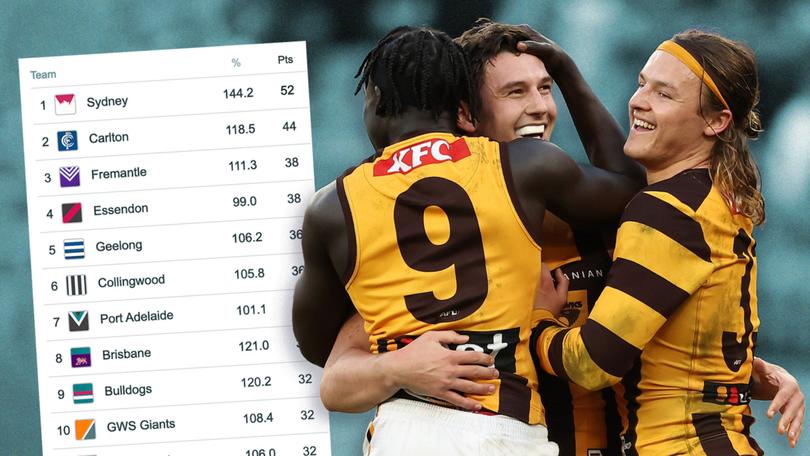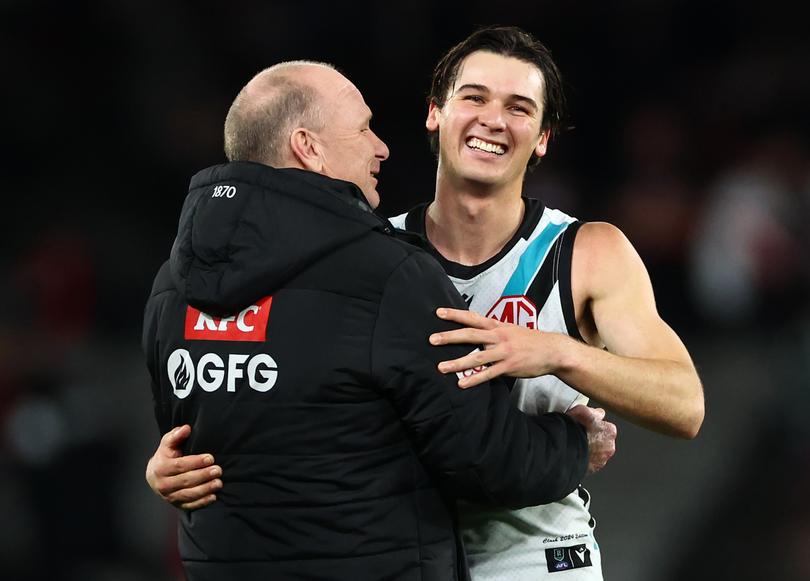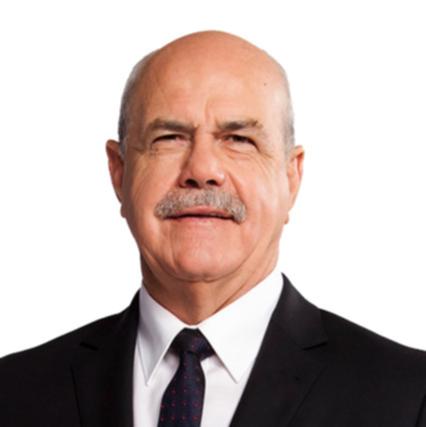LEIGH MATTHEWS: Why AFL ladder shows the comp is thriving under league’s equalisation policies
The AFL’s equalisation policies are designed to create closer competition and a lot of tight results. This season has been a beauty in regard to that objective.

There’s plenty of debate going on, particularly by many of the more vocal club presidents, around the AFL’s equalisation and competitive balance mechanisms that are under review.
That old saying that “you can’t please all of the people all of the time” comes to mind because clubs will always have their own best interests as the main priority.
The best decision made by the original VFL was to hand control of the sport to an independent commission (now the AFL Commission).
Sign up to The Nightly's newsletters.
Get the first look at the digital newspaper, curated daily stories and breaking headlines delivered to your inbox.
By continuing you agree to our Terms and Privacy Policy.Since that time the game has thrived as the evolution into a flourishing AFL national competition has taken place.
With teams spread around the country it is very hard to embed a completely fair system that gives every club the same opportunity to have on-field success particularly when 10 of the 18 clubs are Victorian-based and the grand final will always be at the MCG.
The AFL’s equalisation policies are designed to create a closer competition and a lot of tight results.
This season has been a beauty in regard to that objective.
The ladder is the closest I can recall at this time of the season — 13 teams with a genuine shot of playing finals and just six premiership points separating third (Fremantle) and 13th (Hawthorn). The Hawks are undoubtedly the best credentialled 13th team on the ladder I’ve ever seen.
But it’s a good sign that the league is doing something right. The AFL fixture is never going to be completely fair given the structure of 18 clubs and 23 rounds but the two primary objectives of equalisation and competitive balance are travelling quite well.
The national competition has thrived because the Commission, while taking note of individual club and stakeholders’ views, has been strong enough to do what’s best for the game.
That independent view is critical because you can’t please all the people all the time. That’s the bottom line. The independent commission has to weigh up all the facts and make those key decisions.
I’m sure the AFL would have preferred one of the Melbourne clubs to have become the foundation club for Tasmania, but that didn’t happen because the competitive balance funding has allowed all clubs to be solvent.
None of the clubs are bankrupt enough to be forced to relocate. So you got the good and bad about that, but you’ve got the on-field and the financial results — they’re the two things that all revolve around equalisation and competitive balance.
Part of that equalisation is to have as many teams as possible winning and losing the same amount of games, and a lot of close finishes.
Apart from the actual spectacle, tight finishes are the engrossing part of sport – the excitement and tension is palpable. We saw that in Port Adelaide’s Ken Hinkley’s emotional response after his team edged out St Kilda by two points on Sunday.

The AFL wants to maximise attendance and TV ratings because, after all, the AFL at the elite professional level is in the sports entertainment industry.
All 18 teams can’t be exactly equal in everything but the systems in place, such as the draft and salary cap for all the criticism it cops, have created a very competitive and close 2024 season. And that’s good for business.
In a practical sense, the on-field equalisation can’t get much better than where it is presently.
And off the field, the AFL business model means no club is bankrupt. A few are in debt and many require top-up funding from head office but looking at the big picture as of July 2024 it seems to be working well.
With equalisation and competitive balance the league’s top two priorities, fairness comes a distant third. The league tries to put the equalisation objective into the fixture, but anticipating what level teams are going to be 12 months in advance is very difficult.
As for the grand final, it’s hard to argue against playing at the venue that can draw the biggest crowd, the MCG.

Is it fair to a non-Victorian (I won’t use the term interstate — it’s ridiculous. Interstate, after all, is anyone outside your state) team competing?
Clearly not. A non-Victorian team will quite often be playing the GF against and at the home ground of the big Melbourne clubs that play there all the time.
It may be fairer, but I think our game is too brutal and physically demanding to have a best-of-three grand final series.
However, I do think a bye between the preliminary final and grand final week would go some way toward mitigating the unfairness for non-Victorian clubs. It’s perfectly reasonable and doable.
It would seem the reason behind the pre-finals bye is the concern that if a club had already locked in their finals starting position, they would rest players in the final home and away round. That’s insignificant. Who cares?
With only seven days’ break currently, non-Victorian clubs in preliminary finals have to start planning before they’ve even qualified.
They’ve got all these logistical issues that they have to plan for just in case they win. It’s an enormous advantage to a Melbourne club in not having to travel at all, you just get in your car and drive to the MCG.
I recall in 2001 when Brisbane made their first GF after beating Richmond on a Saturday at the Gabba. The next day Ansett went bust.
We didn’t even know how we were going to get to Melbourne until about Wednesday, when the club was able to charter a couple of planes.
Twenty years on, things have gone backwards as current Brisbane coach Chris Fagan pointed out in a missive to AFL House late last year.
“The amount of work that needs to be done to get the team to Melbourne by Thursday of GF week is enormous and way more demanding than what’s required for the home team,” the letter said.
After many GF campaigns with Hawthorn last decade Chris was hit between the eyes with the many extra requirements and cost imposed on a non-Victorian team.
It is extreme penny-pinching by the AFL that they still do not provide FOC charter flights and accommodation for the whole club contingent of players, coaches and their immediate families.
Another consideration in favour of the 14-day break from PF to GF is the current AFL concussion protocol of a mandatory 12-day break from playing.
It is only a matter of time before a player gets a minor concussion in the preliminary final and can’t play in the grand final the week later.
It is one of many issues that require a policy re-think but the AFL wheels turn very slowly.
Why we still persist with the centre bounce bewilders me. Why do we expect our officials, who are there to umpire the game, to master a difficult skill?
It’s just ridiculous that we still force umpires to bounce the ball. There’s no justification for still having the centre bounce.
Another is a mechanism for a send-off rule. If you do an illegal, suspendable act that concusses the other player and forces him to be removed from the match, then the offending player should be sent off too.
The argument against it is it places an extra burden on the game officials. Our game doesn’t seem to have enough faith in our umpires. We figure the umpires will stuff it up.
Just get a mechanism in place, even if it is a decision made after checking the vision and enacted at the next break in play.
Another concern is Brownlow Medal eligibility.
There’s no way Patrick Dangerfield should have been ineligible after he was initially banned for a week for his dangerous tackle on Carlton’s Sam Walsh.
While the Brownlow is for the “fairest and best” the incidental/careless action that may incur a week’s suspension in modern footy does not constitute an ‘unfair’ act.
